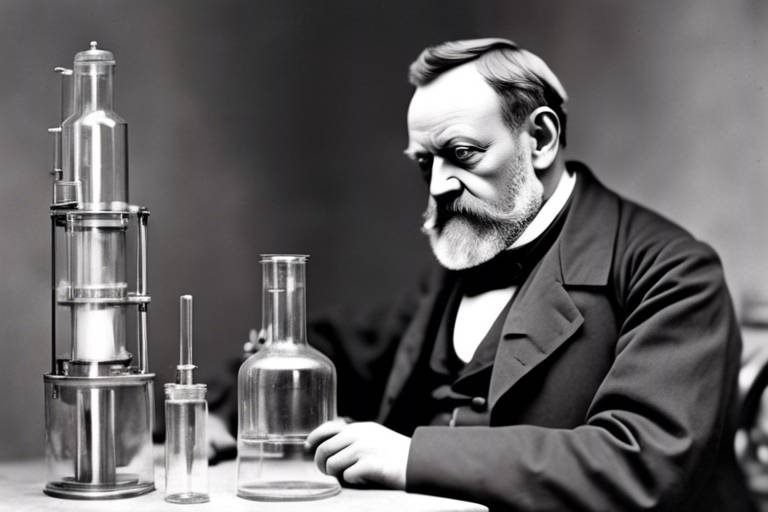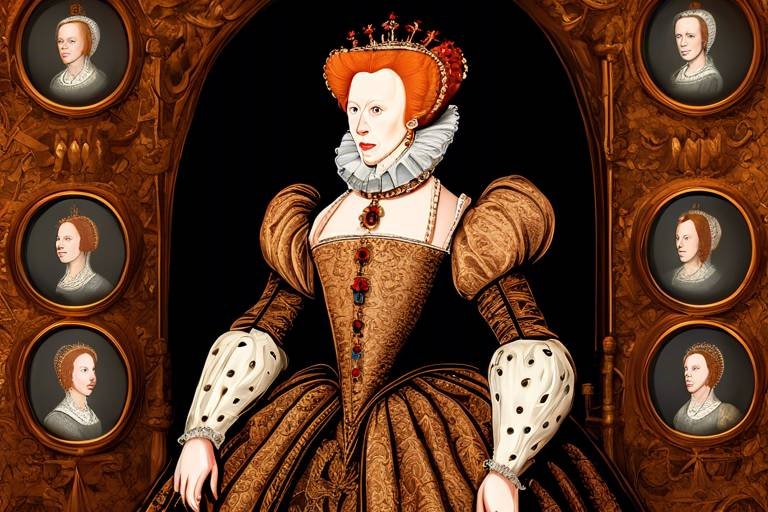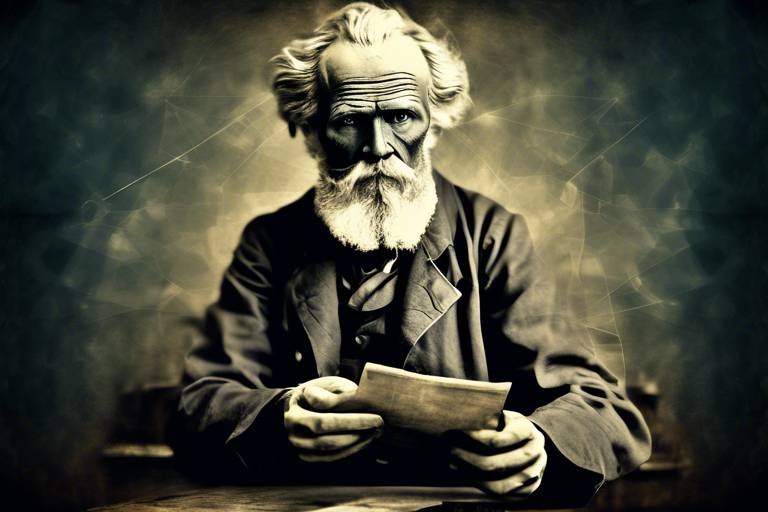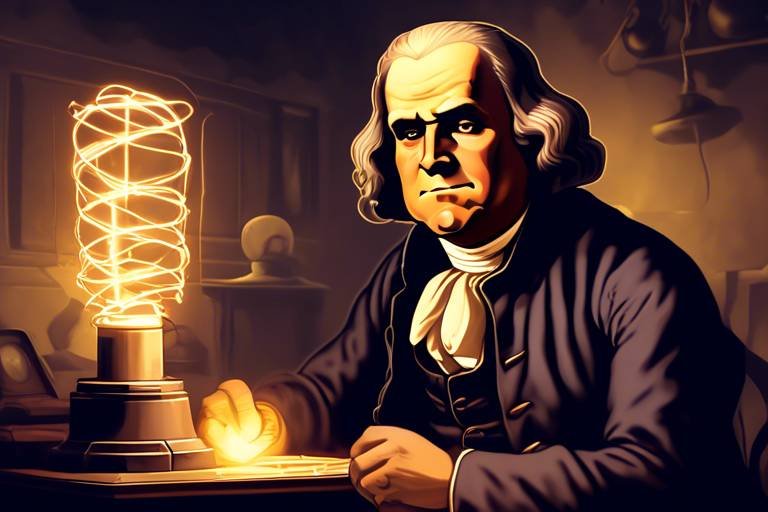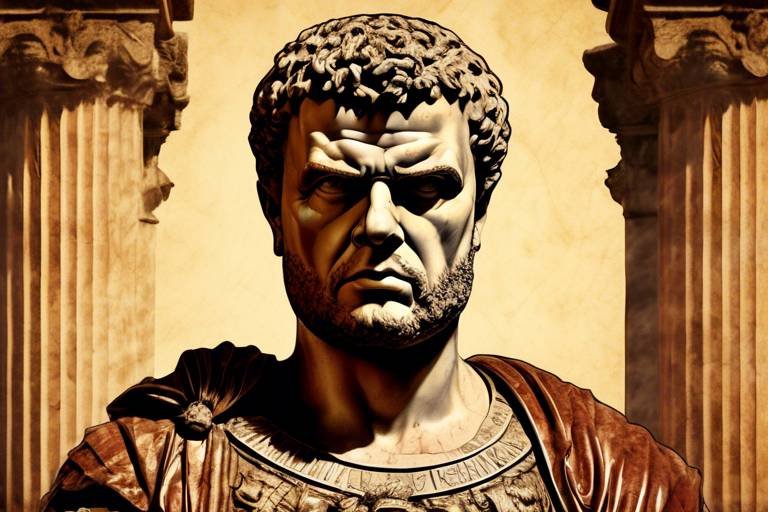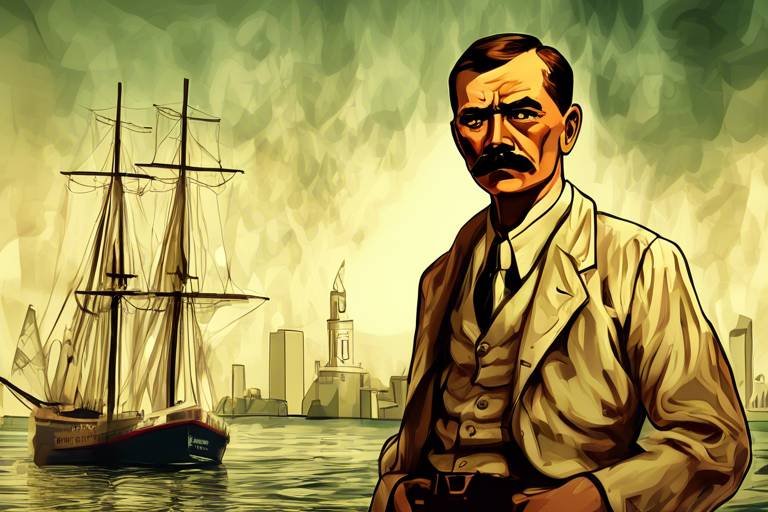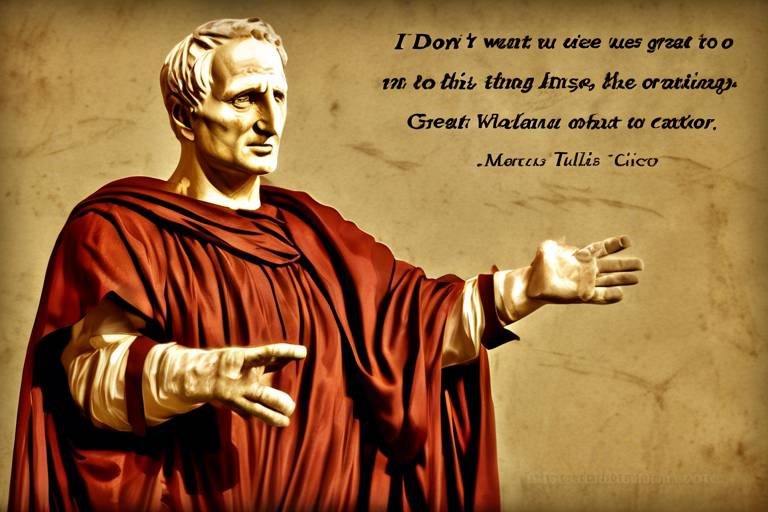Michael Faraday: The Pioneer of Electromagnetism
Michael Faraday, often hailed as the Pioneer of Electromagnetism, was a visionary scientist whose work revolutionized the fields of physics and technology. His groundbreaking discoveries and experiments laid the foundation for modern electromagnetic theory and continue to influence scientific advancements to this day.

Early Life and Education
Michael Faraday, the pioneering figure in electromagnetism, had a humble beginning that defied the odds of his time. Born in 1791 in a poor family in London, Faraday received only basic education and had to work as an apprentice to a bookbinder. Despite the limited formal schooling, his insatiable curiosity and passion for science were evident from a young age.
Faraday's life took a pivotal turn when he attended lectures by renowned chemist and physicist Humphry Davy. Inspired by Davy's work, Faraday meticulously took notes and bound them into a book, which he sent to Davy along with a job application. This bold move captured Davy's attention, leading to Faraday's employment at the Royal Institution as Davy's assistant.
Working closely with Davy, Faraday immersed himself in scientific experiments and observations, laying the foundation for his own groundbreaking discoveries. His hands-on approach to learning and relentless pursuit of knowledge set him apart in the scientific community, despite his lack of formal academic training.
Faraday's early life and education exemplify the power of determination and passion in overcoming obstacles. His journey from a bookbinder's apprentice to a world-renowned scientist serves as an inspiration to aspiring researchers and innovators, emphasizing the importance of perseverance and self-education in pursuing one's dreams.

Faraday's Experiments with Electricity
Michael Faraday, a true pioneer in the realm of electromagnetism, embarked on a journey that would forever change the course of science. His relentless pursuit of knowledge and insatiable curiosity propelled him to conduct groundbreaking experiments that unlocked the mysteries of electricity and magnetism.
Faraday's experiments with electricity were nothing short of revolutionary. Among his most notable achievements was the invention of the first electric motor, a device that would go on to power countless innovations in the field of technology. Through his meticulous observations and ingenious experiments, Faraday laid the foundation for modern electrical systems and devices.
One of Faraday's most significant contributions was his work on electromagnetic induction. By demonstrating the relationship between electricity and magnetism, he paved the way for the development of electric generators and transformers, essential components of our modern power grid. Faraday's experiments with coils and magnets revealed the fundamental principles that govern electromagnetic interactions, shaping the course of physics forever.
Faraday's exploration of electricity extended beyond mere observation; he sought to understand the underlying laws that governed its behavior. His discovery of the laws of electrolysis marked a turning point in the field of chemistry, providing a quantitative framework for the study of chemical reactions involving electricity. By relating the amount of substances produced during electrolysis to the flow of current, Faraday established a crucial link between electricity and chemical processes.
Faraday's experiments with electricity not only expanded our understanding of the natural world but also inspired future generations of scientists to push the boundaries of knowledge. His innovative approach to scientific inquiry, characterized by hands-on experimentation and empirical evidence, continues to serve as a guiding principle for researchers seeking to unravel the mysteries of the universe.

Faraday's Laws of Electrolysis
Michael Faraday's laws of electrolysis are fundamental principles in the field of chemistry that have had a lasting impact on our understanding of chemical reactions involving electricity. Faraday's groundbreaking work in this area quantitatively relates the amount of substances produced during electrolysis to the current passing through the electrodes. These laws provide a crucial framework for studying and predicting the outcomes of electrolytic processes and have practical applications in various industries.
Faraday's first law of electrolysis states that the amount of a substance produced at an electrode during electrolysis is directly proportional to the quantity of electricity passed through the electrolyte. This law establishes a quantitative relationship between the amount of a substance deposited or liberated at an electrode and the electric current flowing through the electrolyte. It laid the foundation for understanding the relationship between electrical energy and chemical reactions.
Faraday's second law of electrolysis further expands on the concept by stating that the amounts of different substances produced by the same quantity of electricity are proportional to their equivalent weights. This law highlights the stoichiometric relationships between the substances involved in an electrolytic reaction, providing valuable insights into the composition and behavior of electrolytes under the influence of an electric current.
Faraday's laws of electrolysis have practical applications in various fields, including electroplating, metal extraction, and industrial processes that rely on electrolytic reactions. By understanding and applying these laws, scientists and engineers can control and optimize electrolytic processes to achieve specific outcomes with precision and efficiency.
Faraday's contributions to the study of electrolysis not only advanced the field of chemistry but also paved the way for future research and technological developments in electrochemistry. His meticulous experiments and theoretical insights have stood the test of time, continuing to inspire and guide scientists in exploring the intricate relationship between electricity and chemical transformations.

Faraday's Magnetic Field Concept
Michael Faraday's exploration of magnetic fields was truly revolutionary in the field of electromagnetism. By conducting experiments with magnets and coils, Faraday developed the concept of magnetic fields and their interaction with electric currents. His work laid the foundation for the theory of electromagnetic fields, which has become fundamental in modern physics and technology.
Faraday's experiments revealed the intricate relationship between magnets and electric currents, demonstrating how a changing magnetic field can induce an electric current. This groundbreaking discovery paved the way for the development of generators and transformers, essential components in the production and transmission of electricity.
One of Faraday's most famous experiments involved moving a magnet through a coil of wire, observing the generation of an electric current. This phenomenon, known as electromagnetic induction, was a key breakthrough that led to the invention of the electric generator, transforming the way we harness and utilize electrical energy.
Faraday's magnetic field concept not only revolutionized the understanding of electricity and magnetism but also inspired further research and advancements in the field. His innovative approach to experimentation and his keen observations of natural phenomena set him apart as a pioneer in the study of electromagnetism.

Faraday's Influence on Maxwell's Equations
Michael Faraday's influence on James Clerk Maxwell and the development of Maxwell's equations was profound and far-reaching. Faraday's groundbreaking work in the field of electromagnetism laid the foundation for Maxwell's unification of electricity and magnetism into a single theory. Maxwell, inspired by Faraday's experiments and concepts, formulated a set of equations that elegantly described the behavior of electric and magnetic fields. These equations, known as Maxwell's equations, became the cornerstone of classical electromagnetism and modern physics.
Faraday's experiments with electricity and magnetism provided the empirical evidence and insights that Maxwell needed to develop his equations. Faraday's concept of magnetic fields and his discovery of electromagnetic induction were instrumental in shaping Maxwell's understanding of the relationship between electricity and magnetism. Maxwell built upon Faraday's work, refining and formalizing the concepts into a set of mathematical equations that are still used today to describe the fundamental laws of electromagnetism.
The collaboration between Faraday and Maxwell, although they never directly worked together, exemplifies the continuity and progression of scientific knowledge. Faraday's experimental discoveries and intuitive insights combined with Maxwell's mathematical prowess and theoretical acumen resulted in a revolutionary advancement in the understanding of electromagnetism. Their partnership, spanning generations and disciplines, highlights the interconnectedness of scientific progress and the importance of building upon the work of those who came before.

Legacy and Impact on Science
Michael Faraday's legacy and impact on science are immeasurable, shaping the very foundation of modern physics, chemistry, and technology. His pioneering work in electromagnetism paved the way for countless scientific advancements and innovations that continue to influence our world today.
Faraday's groundbreaking discoveries not only revolutionized the field of physics but also had a profound impact on the development of technology. His experiments with electricity and magnetism laid the groundwork for the practical application of electromagnetic principles in devices such as generators, transformers, and electric motors.
Moreover, Faraday's laws of electrolysis provided crucial insights into the relationship between electricity and chemical reactions, influencing the field of chemistry and contributing to the understanding of fundamental processes in nature.
Faraday's concept of magnetic fields and his experiments with electromagnetic induction were instrumental in the development of the theory of electromagnetic fields, which forms the basis of modern electromagnetic theory and has led to significant advancements in various technological fields.
Faraday's influence extended beyond his own time, as his collaboration with James Clerk Maxwell resulted in the unification of electricity and magnetism in Maxwell's equations. This monumental achievement laid the foundation for classical electromagnetism and set the stage for further advancements in the field of physics.
Faraday's emphasis on experimental observation and empirical evidence continues to inspire scientists and researchers to approach their work with rigor and curiosity. His unique methodology of combining theoretical insight with practical experimentation remains a guiding principle in scientific inquiry to this day.

Faraday's Scientific Methodology
Michael Faraday's approach to scientific inquiry was characterized by meticulous experimental observation and a strong emphasis on empirical evidence. He believed in the power of hands-on experimentation to uncover the secrets of nature, rather than relying solely on theoretical speculation. Faraday's methodology involved designing carefully controlled experiments to test his hypotheses, recording detailed observations, and drawing conclusions based on the data he gathered.
Faraday's commitment to rigorous experimentation and his meticulous attention to detail set him apart as a scientist of exceptional caliber. He was known for his patience and perseverance in the face of challenges, often repeating experiments multiple times to ensure accuracy and reliability of results. His methodical approach not only led to groundbreaking discoveries but also inspired generations of scientists to follow in his footsteps.
Furthermore, Faraday's methodology extended beyond the laboratory, as he was a gifted communicator who could effectively convey complex scientific concepts to a wider audience. Through his public lectures and demonstrations at the Royal Institution, Faraday sparked curiosity and excitement about science among the general public, making scientific knowledge more accessible and engaging for all.
In essence, Faraday's scientific methodology can be likened to a skilled craftsman meticulously shaping a masterpiece, with each experiment serving as a stroke of genius on the canvas of discovery. His unwavering dedication to empirical evidence and his relentless pursuit of knowledge continue to inspire scientists and researchers to approach their work with the same level of precision and passion.
Frequently Asked Questions
- Who was Michael Faraday?
Michael Faraday was a renowned scientist and pioneer in the field of electromagnetism. He is best known for his groundbreaking experiments and discoveries that laid the foundation for modern physics and technology.
- What were some of Faraday's key contributions?
Faraday made significant contributions to the understanding of electricity, magnetism, and electromagnetic fields. His experiments led to the invention of the first electric motor, the laws of electrolysis, and the concept of magnetic fields.
- How did Faraday influence Maxwell's equations?
Faraday's work on electromagnetic induction and magnetic fields greatly influenced James Clerk Maxwell, leading to the development of Maxwell's equations. These equations unified electricity and magnetism into a single theory, shaping modern physics.
- What was Faraday's scientific methodology?
Faraday emphasized experimental observation and empirical evidence in his scientific inquiries. His rigorous approach to research set a standard for scientific methodology still followed by scientists today.
- What is Faraday's lasting legacy?
Faraday's legacy extends beyond his scientific discoveries to his influence on future generations of scientists and inventors. His work continues to inspire advancements in physics, chemistry, and technology.



